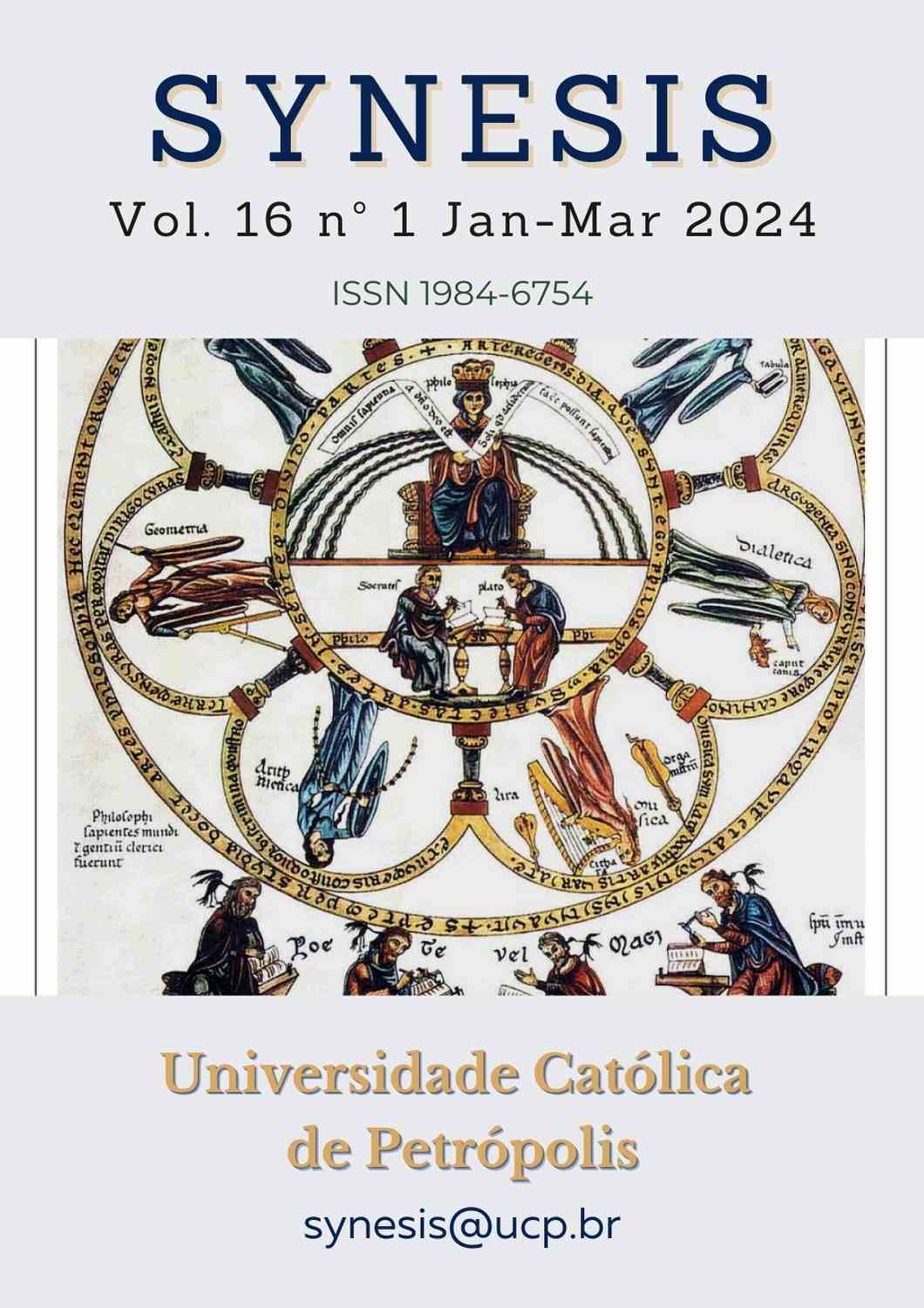Resumo
O ChatGPT surge como uma oportunidade e também um desafio para a educação. O crescente desenvolvimento da IA, incluindo o ChatGPT, é irreversível. O ChatGPT está cada vez mais envolvido em todas as áreas de pesquisa e ensino nas atuais universidades do Vietnã. O ensino da filosofia marxista-leninista nas universidades do Vietname deve ser transformado para vivermos juntos sem proibir e dominar o ChatGPT e controlá-lo para que possa apoiar eficazmente a investigação, o ensino e a aprendizagem da filosofia, especialmente na era da tecnologia e da transformação digital. Confrontado com o impacto actual do ChatGPT, o papel e a posição dos professores de filosofia marxista-leninistas precisam de mudar, não ser reduzidos, mas desenvolvidos, especialmente a capacidade profissional e profissional precisa de ser significativamente melhorada para se adaptar ao ambiente de ensino do ChatGPT. Os professores devem avaliar todo o conteúdo das aulas que o ChatGPT disponibiliza para corrigir ou corrigir erros ou atualizar conhecimentos, principalmente acrescentando situações ou contextos linguísticos. O ChatGPT pode basicamente fazer a tarefa de fornecer conhecimento aos alunos, então o professor deve mudar de função, tornando-se um avaliador, analisador, explorando conhecimentos, treinando habilidades e orientando métodos de aprendizagem. O último novo episódio é para avaliar o desenvolvimento da capacidade do aluno. Esta pesquisa foi realizada para analisar e esclarecer os conteúdos básicos relacionados ao ensino da filosofia marxista-leninista nas universidades do Vietnã antes do impacto do ChatGPT. Os resultados mostram que o ChatGPT pode trazer muitos benefícios importantes nas atividades educacionais em geral e no ensino da filosofia marxista-leninista em particular nas universidades do Vietname hoje. Além de declarar e analisar os impactos do ChatGPT no ensino da filosofia marxista-leninista nas universidades do Vietname, expresso através de seis pontos básicos, o artigo também oferece soluções básicas para se adaptar à situação. O impacto do ChatGPT no ensino da filosofia marxista-leninista nas universidades do Vietnã hoje. A limitação deste estudo é que ele não analisou os fatores que afetam a melhoria da qualidade do ensino da filosofia marxista-leninista nas universidades do Vietnã antes do impacto do ChatGPT.
Referências
Assessing the impact of ChatGPT in higher education, retrieved from: https://hcmussh.edu.vn/tin-tuc/danh-gia-ChatGPT-trong- Giao-duc-dai-hoc
Do Men, how does ChatGPT create challenges for the education sector? Retrieved from: https://vneconomy.vn/ChatGPT-tao-ra-thach-thuc-voi-nganh- Giao-duc-nhu-nao.htm
Fuchs, K (2023), Exploring the opportunities and challenges of NLP models in higher education: Is ChatGPT a blessing or a curse? Front. Educ, 8, 1166682
Gilson, A.; Safranek, C.W.; Huang, T.; Socrates, V.; Chi, L.; Taylor, R.A.; Chartash, D (2023), How does CHATGPT Perform on the United States Medical Licensing Examination? The Implications of Large Language Models for Medical Education and Knowledge Assessment. JMIR Med. Educ, 9, e45312.
Iskender (2023), Holy or Unholy? Interview with Open AI's ChatGPT, European Journal of Tourism Research, 34, 3414. https://doi.org/10.54055/ejtr.v34i.3169
K. Lo (2023), What Is the Impact of ChatGPT on Education? A Rapid Review of the Literature. Education Sciences. vol. 13, no. 4:410, https://doi.org/10.3390/educsci13040410
Neuman, M.; Rauschenberger, M.; Schön, E.M (2023), "We Need To Talk About ChatGPT": The Future of AI and Higher Education. Hochschule Hannover, 1, 1–4.
Olivia b. Waxman (2023), The Creative Ways Teachers Are Using ChatGPT in the Classroom, retrieved from: https://time.com/6300950/ai-schools-ChatGPT-teachers/
Rahman, M.M.; Watanobe, Y (2023), ChatGPT for education and research: Opportunities, threats, and strategies. Appl. Sci. 13, 5783.
Strzelecki, A (2023), To use or not to use ChatGPT in higher education? A study of students' acceptance and use of technology. Interact. Learn. Environ, 1–14.
The Chronicle of Higher Education. (2023). What you need to know about ChatGPT. The Chronicle of Higher Education. Retrieved March 24, 2023, from https://www.chronicle.com/newsletter/teaching/2023-03-16
The Education sector proactively researches and uses ChatGPT, artificial intelligence, retrieved from: https://moet.gov.vn/tintuc/Pages/tin-tong-hop.aspx?ItemID=8410
Tran Mai Uoc (2023). Applying Ho Chi Minh 's thoughts on people to promote the role of university lecturers before the impact of the current ChatGPT in Vietnam. European Chemical Bulletin,12 (Special Issue 4), 5926-5936. Retrieved from https://www.eurchembull.com/issue-content/applying-ho-chi-minh-s-thoughts-on-people-to-promote-the-role-of-university-lecturers-before-the-impact-of-the-current-ChatGPT-in-vietnam-3463
Tran Mai Uoc (2023). Ho Chi Minh's thoughts on the content, methods of education and the application of ChatGPT in higher education today in Vietnam. Journal for Educators, Teachers and Trainers,Vol. 14(2). 147-154. Retrieved from https://jett.labosfor.com/index.php/jett/article/view/1528
Tran Mai Uoc. 2023. Transforming educational methods of political theory before impact of ChatGPT in Vietnam today. Conhecimento & Diversidade, v. 15, n. 38 Jul./Set. 2023, p 1-11. Retrieved from https://revistas.unilasalle.edu.br/index.php/conhecimento_diversidade/article/view/11023
Wang, T.; Lund, B.D.; Marengo, A.; Pagano, A.; Mannuru, N.R.; Teel, Z.A.; Pange, J. Exploring the Potential Impact of Artificial Intelligence (AI) on International Students in Higher Education: Generative AI, Chatbots, Analytics, and International Student Success. Appl. Sci. 2023, 13, 6716.
Wollowski (2023), M. Using ChatGPT to produce code for a typical college-level assignment. AI Mag, 44, 129–130.
Wu, D. (2023). Professors published a paper on AI with a 'plot twist' – ChatGPT wrote itWw. MSN. Retrieved March 24, 2023, from https://www.msn.com/en-us/news/us/professors-published-a-paper-on-ai-with-a-plot-twist-%e2%80% 94-ChatGPT-wrote-it/ar-AA18YDXr
Xiaoming Zhai (2022), ChatGPT User Experience: Implications for Education, Available at: SSRN 4312418
Y. T. Lin, and J. H. Ye (2023), Development of an Educational Chatbot System for Enhancing Students' Biology Learning Performance. Journal of Internet Technology vol.24 no. 2, DOI:10.53106/160792642023032402006

Este trabalho está licenciado sob uma licença Creative Commons Attribution-NonCommercial-NoDerivatives 4.0 International License.
Copyright (c) 2023 Synesis (ISSN 1984-6754)

